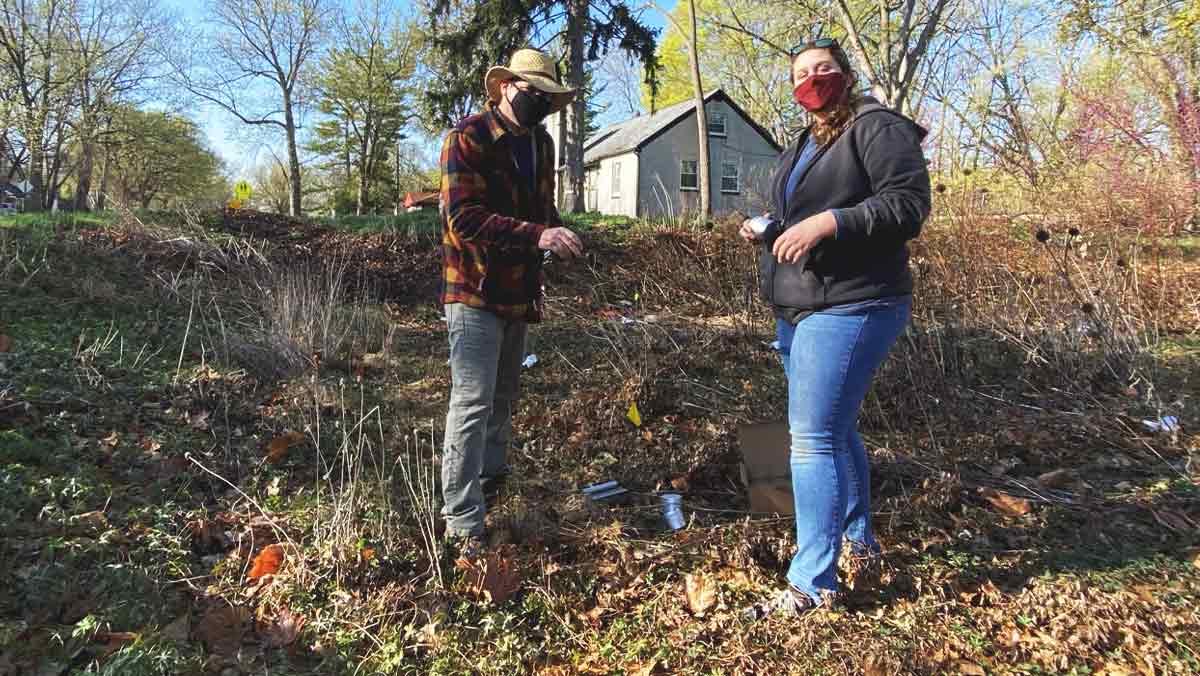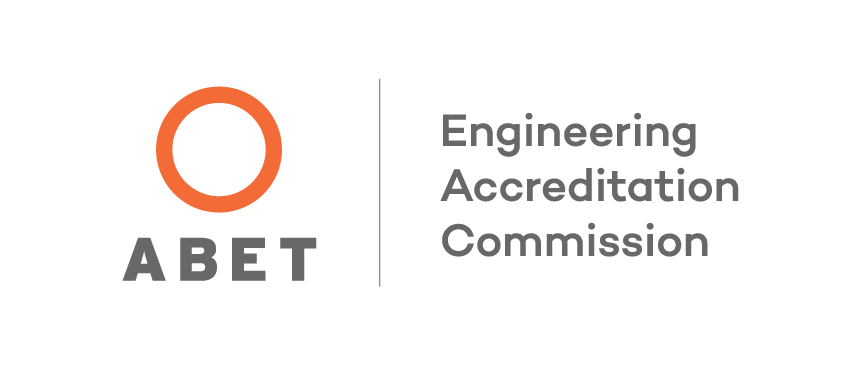Bachelor of Science in Civil Engineering

Wayne State University’s Bachelor of Science in Civil Engineering is a four-year undergraduate degree. It covers fundamental expertise in construction, environmental, structures and transportation engineering, all of which are related to the infrastructures and services that support contemporary society and industry.
Through the civil engineering program, you will graduate with a robust understanding of the ethical, professional and logistical positioning of a civil engineer, along with extensive real-world experience in engineering offices, where you will participate in impactful engineering projects.
Program highlights
- Team-based senior design project to develop real-world industry solution
- Formalized co-op work program for paid on-the-job experience
- Expert faculty from each core discipline within civil and environmental engineering
- Accelerated BSCE+MSCE graduate degree option
- ABET-accredited
What is civil engineering?
Civil engineering concerns the spaces where we live, work, play, commute and commune. It involves aspects of mechanical engineering, electrical engineering, management, economics, materials science, computer science, physics and chemistry, all of which contribute to the places in which we live and the environment that brings those places to life. From urban infrastructure like transportation networks and power plants to broad considerations of air, water and soil quality, civil engineers influence every corner of society.
With employment prospects on an upward trend worldwide, there's no better place to engage in civil engineering than a resurgent Detroit. At Wayne State University’s College of Engineering, you'll learn from nationally renowned faculty experts and benefit from our High Impact Practices of Student Success: team-based learning, global perspective, undergraduate research, internships and co-ops, and community service.
Learn more about civil engineering.
Bachelor’s in civil engineering learning outcomes
Prepare to plan, design and innovate as a crucial contributor to the infrastructures that sustain our society. The civil engineering major at Wayne State equips you for Computer-Aided Design (CAD) and modeling, managing projects, conducting experiments, analyzing and interpreting data, solving complex problems, creating environmentally friendly solutions, and working in all aspects of civil engineering, including structural, transportation, construction, and hydrologic engineering.
You will graduate prepared to communicate with a variety of stakeholders through verbal presentations, informal conversations and written reports. You’ll enter the workforce with the creativity and confidence necessary to effect real change in cities and communities.
Program curriculum and courses
The civil engineering bachelor’s requires a minimum of 123 credit hours of coursework, including the university-wide general education requirements and your Capstone Senior Design course.
During your time at Wayne State, you will start with a solid basis in the areas of chemistry, physics, calculus and advanced mathematics, and elements of programming. Next you take on professional preparation in the areas of construction engineering, structures and materials, transportation design, and multiple areas of environmental engineering (with a focus on hydrology, wastewater, drinking water; air quality, soils). We offer plenty of electives in each of the disciplines to build on your technical expertise. Your faculty and academic advisor will help you select technical and design electives that align with your professional interests.
Review the B.S. in civil engineering curriculum.
Hands-on learning to prepare you for career success
Real-world experience is the best way to prepare for real-world careers. At Wayne State University, our students can get technical elective credit by taking a sequence of courses that includes preparation for employment and cooperative work experience. Every senior is required to take our CEE 4995 Senior Design Capstone course. In this course, you work with a team to take on an infrastructure design project that draws on your accumulated knowledge in construction, structures and materials, environmental (air, water, soil), and transportation engineering. By getting active with our ASCE Student Chapter, you can join a team to design and build a concrete canoe, a scaled steel bridge and compete against other universities in ASCE-sponsored competitions.
The College of Engineering’s career services can help you find internship and co-op placements, connect you with networking events and Wayne State alumni, and strengthen your application materials when it comes time to apply for your first job after graduation.
AGRADE program
Our Accelerated Graduate Enrollment (AGRADE) program can give you a head start on your master’s degree. If you qualify after completing at least 90 credits of coursework, you can work with your undergraduate and graduate advisors to develop a plan of work from which 16 credits of coursework apply toward both your B.S. and M.S. at Wayne State.
The AGRADE program allows you to save money — you can complete the coursework at the lower undergraduate tuition rates — and time, meaning you can graduate with your master’s up to two semesters early.
Undergraduate research with expert faculty
At Wayne State, Michigan’s only public, urban research university, you have countless opportunities to conduct interesting and world-opening research as an undergraduate. These individual, collaborative and faculty-mentored research experiences position you for success in undergraduate research colloquia, graduate school applications and employment opportunities. Our faculty specialties include construction, environmental, structural and transportation engineering.
What can you do with a bachelor’s degree in civil engineering?
Infrastructure across the country is aging; we need people like you to contribute to repairing what’s broken and building toward a more robust future.
Careers in civil engineering are lucrative, averaging more than $88,000 per year (Bureau of Labor Statistics). As a civil engineer, you will work toward the strength and stability of communities, municipalities and states in engineering consulting firms, construction companies and government agencies.
Building on Wayne State’s compelling engineering programming, you are also well suited to advance your studies at the master’s and doctoral levels, and a BSCE is great preparation for law school.
Affordable tuition and cost
Wayne State tuition rates are some of the most affordable among top engineering programs in Michigan. We charge a flat-rate tuition for regular full-time course loads, a structure that allows you to graduate faster and with less debt than per-credit tuition fees. To further support your education, we offer generous scholarships and financial aid packages that empower students; in 2022, Wayne State distributed nearly $335 million in financial aid.
Use our Net Price Calculator to estimate your cost of attendance, including scholarships and grants!
ABET accreditation
WSU's Bachelor of Science in civil engineering program is accredited by the Engineering Accreditation Commission (EAC) of ABET, https://www.abet.org, under the General Criteria and the Program Criteria for the BSCE Bachelor of Science in Civil Engineering.
Learn more about Wayne State University's civil engineering program outcomes and ABET accreditation.
Admission requirements
To apply as a first-year student, follow our streamlined application process. SAT and ACT scores are optional!
Students can now transfer unlimited credits as long as they earn a minimum of 30 credits at WSU. Review our guide for community college transfer students for more on how to navigate the process.
Our application deadlines are:
- Fall (September–December) - Aug. 1
- Winter (January–April) - Dec. 1
- Spring/summer (May–August) - April 1
Take the next step and apply to Wayne State’s B.S. in civil engineering
Identify problems and formulate solutions with the bachelor of science in civil engineering program at Wayne State. This experience-focused degree equips you with a robust theoretical foundation along with invigorating opportunities to apply and expand your learning in real-world environments.
Jeremy Necelis
BSCE '25
Growing up, I always loved playing with Legos and was interested in how things were built. I talked to my advisors about transferring to Wayne State and they directed me into civil engineering.
Jeremy Necelis
BSCE '25
